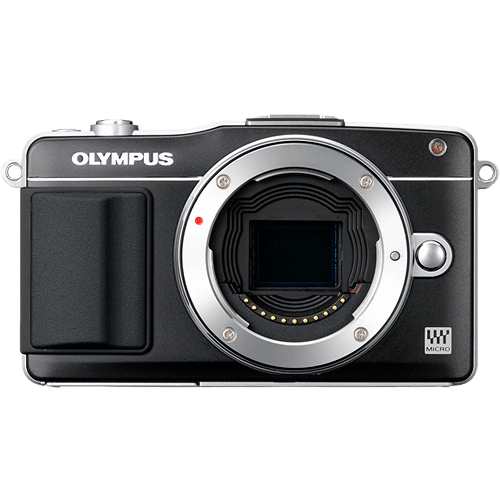Olympus PEN E-PM2 Specs and Scores

The Olympus PEN E-PM2 receives a score of 51/100, which reflects its general specifications. Announced on September 17, 2012, and released the same year, this mirrorless camera initially cost $599. Its dimensions are 110 x 64 x 34mm, and it weighs 269g or 0.59lbs. In today’s market, the E-PM2’s specifications may not seem outstanding, but they still provide decent performance for casual photographers. This camera’s score highlights its capabilities, making it a suitable choice for those seeking a lightweight and compact option.
Olympus PEN E-PM2 Overview and Optics
The Olympus PEN E-PM2 receives an optics score of 55/100. This camera features a 16.1-megapixel CMOS sensor, a TruePic VI processor, and a shooting speed of 8 frames per second. Its DXOMARK score for the sensor is 72, and it is equipped with Micro Four Thirds sensor size and lens mount. Additionally, the E-PM2 includes image stabilization and a 4:3 aspect ratio.
When comparing the Olympus PEN E-PM2 to other cameras in today’s market, it falls short in terms of optics. While it offers decent resolution and image quality, the camera’s specifications do not stand out among other modern cameras. The 16.1-megapixel sensor and Micro Four Thirds lens system may not be sufficient for photographers seeking high-quality images and a wide range of lens compatibility.
Although the Olympus PEN E-PM2 has some attractive features, such as image stabilization and a decent sensor, its overall optics performance is underwhelming compared to current market offerings. It may be a suitable option for casual photographers, but those seeking exceptional image quality and advanced optics should explore other options.
Olympus PEN E-PM2 Video Performance
The Olympus PEN E-PM2’s video capabilities score is 43 out of 100. It can record Full HD videos with a maximum resolution of 1920 x 1080 pixels and a frame rate of 30fps. However, this camera lacks built-in time-lapse functionality.
In today’s market, the E-PM2’s video capabilities are somewhat limited compared to other cameras. Many modern cameras offer higher video resolutions, such as 4K, and faster frame rates for smoother playback. Additionally, time-lapse functionality is a popular feature found in various cameras, which the E-PM2 does not have.
Considering these factors, the Olympus PEN E-PM2’s video performance falls short when compared to current market options. Potential buyers should take this into account when deciding on a camera for their video needs.
Olympus PEN E-PM2 Features and Benefits
The Olympus PEN E-PM2 scores 49/100 in the features category. With a 3-inch screen size and a resolution of 460,000 dots, the camera provides a decent display for users. The touchscreen functionality enhances user experience, making it easier to navigate through settings and review captured images. However, the absence of a flip screen may limit its versatility for certain shots and angles.
The camera lacks connectivity features such as GPS, WiFi, and Bluetooth. This means that users will not be able to geotag their photos or instantly share them with their devices, which is a drawback considering the convenience offered by these functions in today’s market.
Despite its limitations, the Olympus PEN E-PM2 still offers a reliable performance for those who prioritize simplicity and functionality over connectivity and advanced features. It is important to weigh these factors when considering the camera’s suitability for individual needs.
Olympus PEN E-PM2 Storage and Battery
The Olympus PEN E-PM2 scores 21/100 for its storage and battery capabilities. This camera has one memory card slot, accepting SD, SDHC, and SDXC cards. Its battery life lasts for 360 shots, using a BLS-5 battery type. Unfortunately, this camera does not support USB charging.
In today’s market, the E-PM2’s storage and battery performance is below average. Many modern cameras offer multiple memory card slots and longer battery life. Additionally, USB charging is becoming a standard feature, which the E-PM2 lacks. Thus, the storage and battery aspects of the Olympus PEN E-PM2 could be improved to better compete in the current market.
